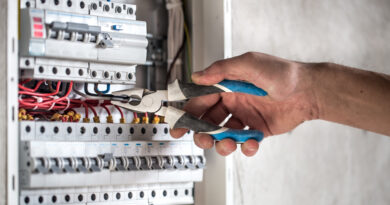Electrical Safety Audit in Ballabhgarh
Introduction
Welcome to our comprehensive guide on electrical safety audits in Ballabhgarh. At CDG Inspection we prioritize the safety and well-being of our clients, and we understand the importance of maintaining a secure electrical environment. This article aims to provide you with valuable insights and practical tips on conducting an effective electrical safety audit in Ballabhgarh. By implementing the best practices outlined here, you can ensure the safety and reliability of your electrical systems.
Understanding Electrical Safety Audits
An electrical safety audit is a systematic examination of electrical installations, systems, and equipment to identify potential hazards, ensure compliance with regulations and standards, and mitigate risks. These audits are essential for promoting electrical safety, preventing accidents, and maintaining a secure working environment.
The Importance of Electrical Safety Audits
- Preventing Accidents: Electrical hazards can lead to severe accidents, including electrocutions, fires, and property damage. Conducting regular safety audits helps identify potential risks and take proactive measures to prevent accidents.
- Legal Compliance: Compliance with electrical safety regulations is mandatory in Ballabhgarh. By conducting audits, you ensure that your electrical systems meet the required standards and regulations, reducing the risk of penalties or legal issues.
- Minimizing Downtime: Electrical failures and malfunctions can cause costly downtime for businesses. Regular audits help identify areas of improvement, allowing you to address issues before they escalate, minimizing interruptions to your operations.
- Protecting Lives and Property: Electrical accidents can cause injuries and damage property. By conducting safety audits, you prioritize the well-being of your employees and protect your valuable assets.
Key Elements of an Electrical Safety Audit
To perform a thorough electrical safety audit, several key elements must be considered:
1. Documentation Review
Reviewing relevant documentation, including electrical system diagrams, maintenance records, and previous audit reports, provides crucial insights into the current state of your electrical systems.
2. Visual Inspection
Conducting a detailed visual inspection allows you to identify visible hazards, such as exposed wiring, damaged equipment, improper grounding, or signs of overheating. This step helps ensure that your electrical installations are in compliance with safety standards.
3. Testing and Measurement
Performing tests and measurements, such as voltage checks, insulation resistance tests, and load assessments, helps assess the functionality and reliability of your electrical systems. These tests identify potential issues and ensure that equipment operates within safe parameters.
4. Risk Assessment
Conducting a comprehensive risk assessment helps evaluate the level of risk associated with your electrical systems. This includes identifying potential hazards, assessing the likelihood of accidents, and determining the severity of their consequences.
5. Compliance Verification
Verifying compliance with relevant electrical codes, regulations, and standards is a crucial aspect of the audit. This ensures that your systems meet the necessary requirements and guidelines, reducing the likelihood of accidents and legal issues.
Benefits of Hiring a Professional Electrical Safety Auditor
While you may have an in-house maintenance team, engaging a professional electrical safety auditor brings numerous advantages:
- Expertise and Experience: Professional auditors possess extensive knowledge and experience in conducting electrical safety audits. They are well-versed in industry standards and can identify potential hazards that may be overlooked by internal teams.
- Unbiased Evaluation: External auditors offer an impartial assessment of your electrical systems, providing an unbiased evaluation of their safety and compliance. This helps ensure thoroughness and objectivity during the audit process.
- Comprehensive Reports: Professional auditors provide detailed reports outlining the audit findings, identified risks, and recommended corrective actions. These reports serve as valuable references for addressing safety issues and implementing necessary improvements.
Conclusion
Conducting regular electrical safety audits in Ballabhgarh is vital for ensuring a secure and efficient environment. By prioritizing safety, complying with regulations, and addressing potential risks, you can prevent accidents, protect lives and property, and maintain uninterrupted operations. Remember, engaging a professional electrical safety auditor enhances the effectiveness and reliability of your audit process.



